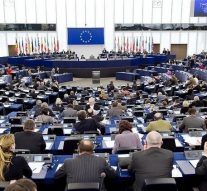
New “fragmented” EU Parliament: potential deadlock in choosing top jobs in the Commission?
Employment and Social Affairs 17 June 2019The match for the leadership of the new EU Commission has remained wide open after the outcome of the European elections at the end of May, that resulted in a fragmented Parliament in which both largest EU party families, the right-wing European People’s Party (EPP) and the left-wing Party of European Socialists (PES), lost many seats respect to 2014 vote. The centre-right European People’s Party was down to 180 MEPs from 217, while the Socialists & Democrats will have 145 compared to 184 seats gained in 2014. Thus the voters have opted for a more fragmented parliament, and the new majority coalition will need to include more parties. A new group composed of liberals and progressives, Renew Europe, is stronger than in the latest years with 108 seats. And even the Green party got a strong result gaining 75 seats. In this fluid situation European People’s Party lead candidate Manfred Weber called for an EPP, Socialists, liberal and green alliance underlining “stability”, while socialist lead candidate and Dutch EU commissioner Frans Timmermans called for a “progressive alliance” with liberals, the greens and the far-left, without the EPP – although that does not reach half of the whole 751-seats in the Eu Parliament (Britain’s quota in the 751-seat legislature is 73 Members of the European Parliament). Thus It could be highlighted that the rise of nationalists and eurosceptics was matched by a remarkable growth of support for Greens and Liberals. And now each group has more or less the same number of seats, around 100, being a potential crucial player if disposed to cooperate with the big “traditional” group. In the coming days and months the battle for top jobs in the new Eu Commission may get easier cooperation between parties but also could be a divisive element for Parliament. Manfred Weber, the first-placed EPP’s German lead candidate, is pushing hard to be nominated as Juncker’s successor. But the Socialists have a claim with Dutchman Frans Timmermans, Junker’s current deputy. Macron and his liberal allies may push for one of the few women in the race, Danish EU antitrust chief Margrethe Vestager, or French Brexit negotiator Michel Barnier. The lost of vote in any case registered by the European Popular Party left the supposed frontrunner for the top European Commission job, Manfred Weber, backed by Merkel, in a weaker position. In the last days French President Emmanuel Macron has declared his support for German Chancellor Angela Merkel to become the President of the new European Commission, the executive of the European Union. French President said he’d support German Chancellor for the European Union’s top executive “if she wants it”. Merkel is viewed as a strong and stable leader in Europe despite growing political turbulence in Germany and is something of a figurehead for the Eu. Many European officials are keen to encourage Merkel because they praise her as a unifying figure in the Union. What it is sure just from now is that the next president of the Eu Commission has to be approved by a majority of the 28 member states, but also by a majority of lawmakers at the European Parliament, the EU’s legislative arm. According to “Politico”, a deal between EU conservatives and liberals could install Guy Verhofstadt, the liberal leader and former Belgian prime minister, as the new president of the European Parliament and help secure the Commission presidency for the European People’s Party. A spokesman for Verhofstadt denied the liberal group chief is pursuing such a plan. But the idea is being discussed in EU political circles as talks over the bloc’s top jobs intensify. Another scenario, less probable, would penalize Epp, through the creation of an alliance between Renew Europe and Green Parties.
On the nationalistic side, it has to be said that Marine Le Pen announced the formation of a new cross-national right-wing coalition this morning in the European Parliament. The National Rally leader launched the Identity and Democracy group, otherwise known as ID, as a new alliance of eurosceptic and nationalist parties from across Europe.
It will hold 73 seats in the European Parliament and replace the Europe of Nations and Freedom group. MEP Marco Zanni, a member of Matteo Salvini’s League party, was elected as the group’s chairman.
The European Council is holding leaders’ summit in Brussels to discuss how to fill the EU’s main leadership positions, but there are high prospects of a deadlock. And even in 2014, it took until the end of August for the Council to reach agreement on a leadership slate even though the political math then was far easier. The match to choose new commissioner is still more open and Renew Europe or Green Parties could succeed in obtaining some roles in crucial area, such as Social Affairs and Employment, if they would cooperate in the new Eu Parliament majority. Meanwhile the Slovak capital Bratislava won the right to host a new European Union agency to oversee the labor market that is due to start operating this autumn.
While negotiations in the Council can drag on for months, the new Parliament, which was elected last month, must choose a president during its opening plenary session in the first week of July. The new fragmentation in the Parliament could valorize the need for cooperation or to intensify the division between forces leaving space to populist and nationalistic forces within the EU.


